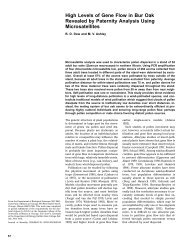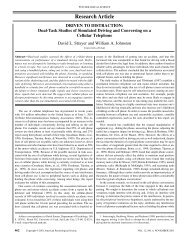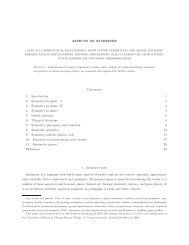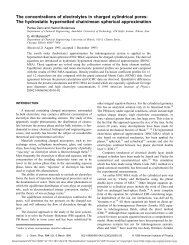Repeating Lenin by Slavoj Zizek
Repeating Lenin by Slavoj Zizek
Repeating Lenin by Slavoj Zizek
Create successful ePaper yourself
Turn your PDF publications into a flip-book with our unique Google optimized e-Paper software.
<strong>Repeating</strong> <strong>Lenin</strong> <strong>by</strong> <strong>Slavoj</strong> <strong>Zizek</strong><br />
9/20/11 2:53 PM<br />
Here Stalin spells out the secret of his rise to power: as a rather anonymous General Secretary,<br />
he nominated tens of thousands of cadres who owed their rise to him... This is why Stalin did<br />
not yet want <strong>Lenin</strong> dead in the early 1922, rejecting his demand to be given poison to end his<br />
life after the debilitating stroke: if <strong>Lenin</strong> were to die already in early 1922, the question of<br />
succession would not yet be resolved in Stalin’s favor, since Stalin as the general secretary did<br />
not yet penetrate enough the Party apparatus with his appointees — he needed another year or<br />
two, so that, when <strong>Lenin</strong> effectively dies, he could count on the support of thousands of midlevel<br />
cadres nominated <strong>by</strong> him to win over the big old names of the Bolshevik “aristocracy.”<br />
Here are some details of the daily life of <strong>Lenin</strong> and the Bolsheviks in 1917 and the following<br />
years, which, in their very triviality, render palpable the gap from the Stalinist nomenklatura.<br />
When, in the evening of 24 October 1917, <strong>Lenin</strong> left his flat for the Smolny Institute to<br />
coordinate the revolutionary takeover, he took a tram and asked the conductress if there was any<br />
fighting going on in the center that day. In the years after the October Revolution, <strong>Lenin</strong> was<br />
mostly driving around in a car only with his faithful driver and bodyguard Gil; a couple of times<br />
they were shot at, stopped <strong>by</strong> the police and arrested (the policemen did not recognize <strong>Lenin</strong>),<br />
once, after visiting a school in suburbs, even robbed of the car and their guns <strong>by</strong> bandits posing<br />
as police, and then compelled to walk to the nearest police station. When, on 30 August 1918,<br />
<strong>Lenin</strong> was shot, this occurred while he got in a conversation with a couple of complaining<br />
women in front of a factory he just visited; the bleeding <strong>Lenin</strong> was driven <strong>by</strong> Gil to Kremlin,<br />
were there were no doctors, so his wife Nadezhda Krupskaya suggested someone should run out<br />
to the nearest grocer’s shop for a lemon... The standard meal in the Kremlin kantina in 1918 was<br />
buckwheat porridge and thin vegetable soup. So much about the privileges of nomenklatura!<br />
<strong>Lenin</strong>’s slanderers like to evoke his famous paranoiac reaction at listening to Beethoven’s<br />
appasionata (he first started to cry, then claimed that a revolutionary cannot afford to let himself<br />
go to such sentiments, because they make him too weak, wanting to pat the enemies instead of<br />
mercilessly fighting them) as the proof of his cold self-control and cruelty — however, even at<br />
its own terms, is this accident effectively an argument AGAINST <strong>Lenin</strong>? Does it not rather bear<br />
witness to an extreme sensitivity for music that needs to be kept in check in order to continue<br />
the political struggle? Who of today’s cynical politicians still displays even a trace of such a<br />
sensitivity? Is not <strong>Lenin</strong> here at the very opposite of the high-ranked Nazis who, without any<br />
difficulty, combined such a sensitivity with the extreme cruelty in taking political decisions<br />
(suffice it to recall Heydrich, the holocaust architect, who, after a hard day’s work, always found<br />
time to play with his comrades Beethoven’s string quartets) — is not the proof of <strong>Lenin</strong>’s<br />
humanity that, in contrast to this supreme barbarism, which resides in the very unproblematic<br />
http://www.marxists.org/reference/subject/philosophy/works/ot/zizek1.htm<br />
Page 18 of 57

















